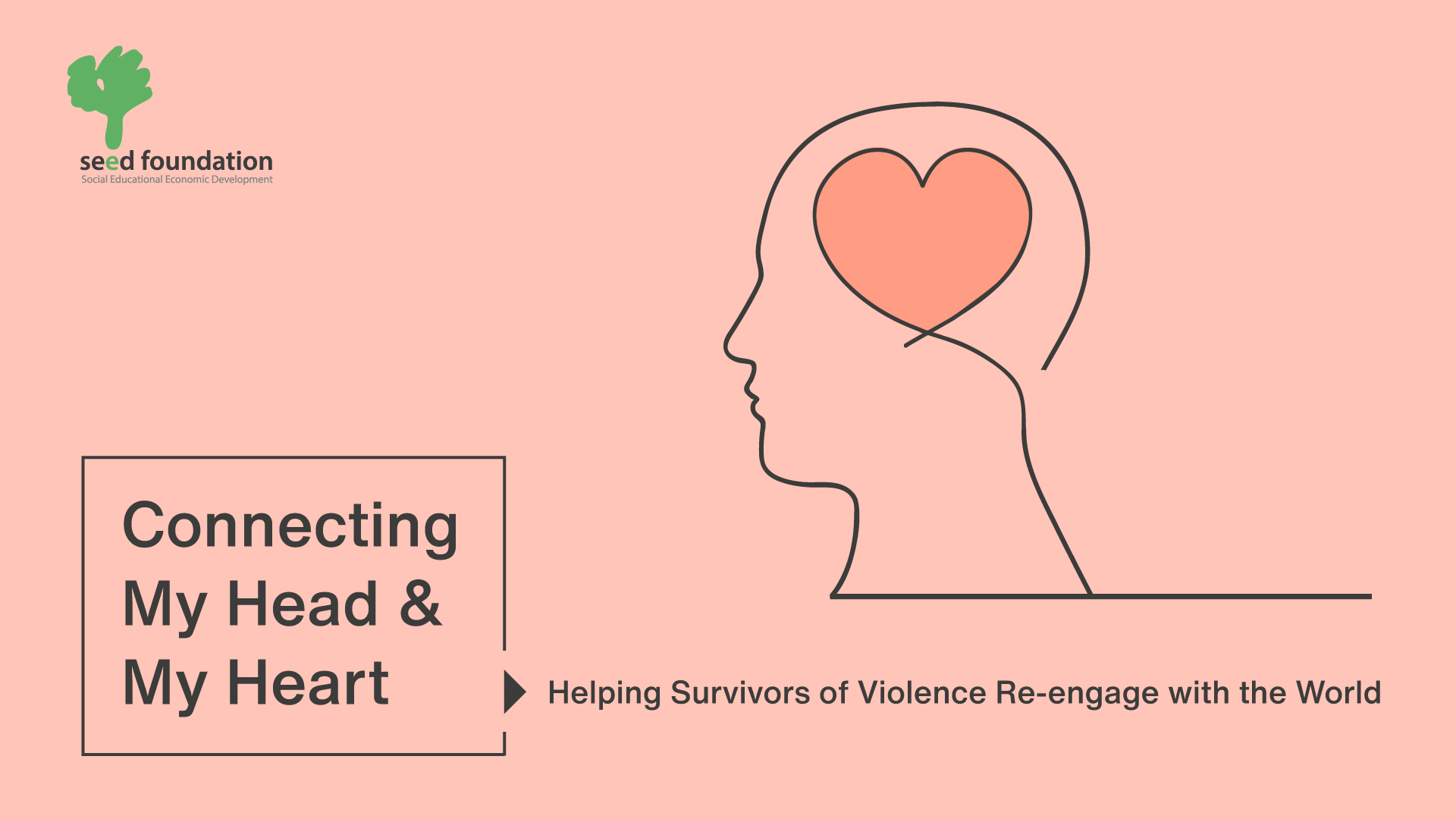
Connecting My Head and My Heart:
How IC Thinking is Helping Survivors of Violence Re-engage with the World
Despite the declaration of ISIS’s defeat in Iraq in 2017, over one million1 conflict-affected women, men, and children remain in need of assistance, with some still missing, and others displaced.
In 2014, ISIS targeted the already marginalized and persecuted members of the Yezidi community due to their ethno-religious identity. As part of the genocidal campaign waged by ISIS, many young Yezidi boys were held captive with their mothers or exploited as child soldiers and forced to join military training camps. These children, some of whom are now youth, suffer from complex trauma as a result of prolonged exposure to violence and extremist ideologies. Today, many reside in formal or informal camps, far from their homes, and may exhibit violent behavior, aggression, and other symptoms of Post-Traumatic Stress Disorder (PTSD).
These children and youth face extreme challenges reintegrating back into their communities, including war-related injuries, malnutrition, aggressive behaviors, selective mutism, an inability to remember their native language, and difficulties playing with and relating to other children. Many have returned from captivity to highly vulnerable and impoverished family units, living in displacement and broken by traumatic loss, and have been placed in the care of relatives and caregivers who may also be experiencing mental health issues. Despite surviving repeated exposure to horrific violence and death, these young boys are typically not welcomed back into their communities with open arms, but may be excluded or even rejected by families, friends, and peers due to stigma and fear.
These survivors are in urgent need of specialized, tailored care and support. Failing to meet their unique needs may contribute to continued cycles of violence, instability, and insecurity in Iraq.
That’s why, in 2021, SEED Foundation embarked upon the development of a new initiative designed to support the recovery and reintegration of young Yezidi men and boys. The resulting program, “Stronger Together,” is an adapted and contextualized version of the Integrative Complexity (IC) Thinking method. Consistent evidence gathered over 40 years has pointed to the importance and efficacy of building up a person’s integrative complexity, including the ability to look at situations from multiple perspectives, which reduces the likelihood of intergroup conflict and violence and increases social harmony and cohesion.
So, how has this program supported the recovery and reintegration of Yezidi boys and young men?
Meet some of our young participants*.
“I wasn’t thinking clearly before joining this course, but after joining, my way of thinking has changed. I can distinguish black and white thinking now. Also, before taking part I didn’t know how to connect my head and heart, but now I have learned to connect them.” Amin, 16
“I got a call from my dad and others informing me about this course. I have learned that we can’t fix anything by fighting. Things have to be settled in a peaceful manner.” Saman, 24
“This course was very interesting. Before joining, I didn’t know how to think and I would see things zoomed in – the smaller picture. I wasn’t looking at the bigger picture. I wasn’t able to make decisions. Now I have learned to think a little more, and I can connect my head and heart before I make a decision.” Ayar, 18
“I had some problems which I couldn’t control, but after joining this course I have found ways to navigate them. Before, I suffered from conflicting thoughts, often surrendering to negative thoughts. It was a very helpful course and thank you all.” Muthanna, 19
“[This course] is about community, how you make decisions, and how you organize your black and white thoughts. If you put them in a new context, you can see logic from a wider angle. You look at things from a different perspective in order to make better decisions and adopt values in life. At the same time, I also learned how to communicate with my own people, how to feel empathy for those who are weaker than me, and how to handle those who are more powerful than me.” Salah, 22
“The eight sessions were very useful in terms of controlling emotions, respecting the views of others, learning about how to share my views, how to find solutions to our problems and looking at alternative solutions – not focusing only on one way to gain control over those problems. At the beginning I didn’t think about other people’s opinions and it was hard for me to convince other people about my own. Now people’s opinions matter to me and I am able to control my feelings.” Zhyar, 25
Of the young men and boys who participated in the “Stronger Together” pilot program, a majority demonstrated increased complexity in their thinking – illustrating an emergence from black and white thinking which will enable them to engage more freely and flexibly with the wider world as they carve out the next chapter of their lives.
Through SEED’s experience working with these children and youth, we know that a coordinated, integrated, and comprehensive package of services is required to address the wide range and complex layers of interrelated challenges they face. “Stronger Together” was not implemented in isolation, but was designed to complement our standard services – including case management, mental health services, legal services, and psychosocial support (PSS) activities for children and their families – for maximum impact.
To holistically meet children’s urgent needs and build sustainable solutions for their safe reintegration, SEED remains committed to countering intolerance, violent ideology, and gender inequality through robust efforts to advocate for necessary reforms, build the capacity of government actors, and provide quality services to vulnerable groups to support them with needed resources and equip them to assert their rights.
Learn more about the IC Thinking curriculum here: https://www.seedkurdistan.org/stronger-together-integrative-complexity-ic-thinking/
*Pseudonyms have been used to protect client confidentiality.
1 CCCM Cluster, March 3, 2022
